Related Research Articles
Star Trek is an American science fiction television series created by Gene Roddenberry that follows the adventures of the starship USS Enterprise (NCC-1701) and its crew. It acquired the retronym of Star Trek: The Original Series (TOS) to distinguish the show within the media franchise that it began.

Forbidden Planet is a 1956 American science fiction film from Metro-Goldwyn-Mayer, produced by Nicholas Nayfack, and directed by Fred M. Wilcox from a script by Cyril Hume that was based on an original film story by Allen Adler and Irving Block. It stars Walter Pidgeon, Anne Francis, and Leslie Nielsen. Shot in Eastmancolor and CinemaScope, it is considered one of the great science fiction films of the 1950s, a precursor of contemporary science fiction cinema. The characters and isolated setting have been compared to those in William Shakespeare's The Tempest, and the plot contains certain happenings analogous to the play, leading many to consider it a loose adaptation.
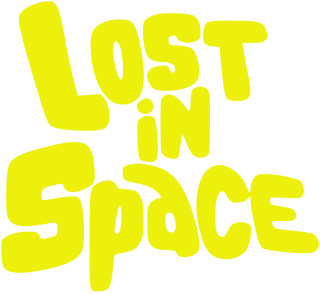
Lost in Space is an American science fiction television series, created and produced by Irwin Allen, which originally aired between 1965 and 1968 on CBS. The series was inspired by the 1812 novel The Swiss Family Robinson. The series follows the adventures of the Robinsons, a pioneering family of space colonists who struggle to survive in the depths of space. The show ran for 83 episodes over three seasons. The first season comprised 29 episodes that ran 1 hour apiece, filmed in black and white. In seasons 2 and 3, the episodes were 54 minutes long and shot in color.

Courage the Cowardly Dog is an American animated comedy horror television series created by John R. Dilworth for Cartoon Network. It was produced by Dilworth's animation studio, Stretch Films. The eponymous character is a dog who lives with an elderly couple in a farmhouse in the middle of Nowhere, a fictional town in Kansas. In each episode, the trio is thrown into bizarre, frequently disturbing, and often paranormal or supernatural adventures. The series is known for its dark, surreal humor and atmosphere.
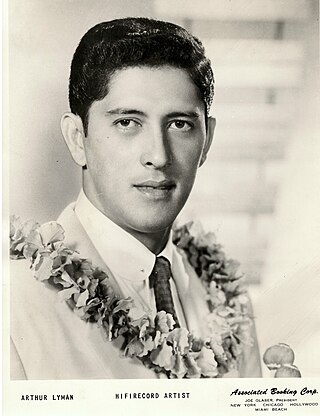
Arthur Lyman was a Hawaiian jazz vibraphone and marimba player. His group popularized a style of faux-Polynesian music during the 1950s and 1960s which later became known as exotica. His albums became favorite stereo-effect demonstration discs during the early days of the stereophonic LP album for their elaborate and colorful percussion, deep bass and 3-dimensional recording soundstage. Lyman was known as "the King of Lounge music."
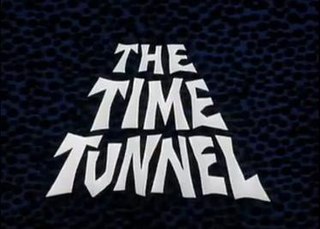
The Time Tunnel is an American color science fiction TV series written around a theme of time travel adventure starring James Darren and Robert Colbert. The show was creator-producer Irwin Allen's third science-fiction television series and was released by 20th Century Fox Television and broadcast on ABC. The show ran for one season of 30 episodes from 1966 to 1967.
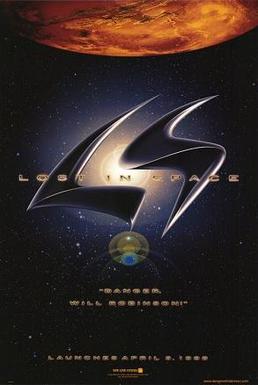
Lost in Space is a 1998 American science-fiction adventure film directed by Stephen Hopkins, and starring William Hurt, Matt LeBlanc, Gary Oldman, and Heather Graham. The plot is adapted from the 1965–1968 CBS television series of the same name. Several actors from the TV show make cameo appearances.
Alexander Mair Courage Jr. familiarly known as "Sandy" Courage, was an American orchestrator, arranger, and composer of music, primarily for television and film. He is best known as the composer of the theme music for the original Star Trek series.
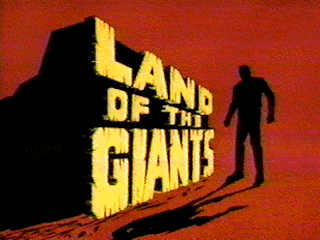
Land of the Giants is a one-hour American science fiction television series that aired on ABC for two seasons, beginning on September 22, 1968, and ending on March 22, 1970. The show was created and produced by Irwin Allen. Land of the Giants was Allen's fourth science-fiction TV series. The show was released by 20th Century Fox Television. The series was filmed entirely in color and ran for 51 episodes. The show starred Gary Conway and special guest star Kurt Kasznar.

William Russell Watrous III was an American jazz trombonist. He is perhaps best known for his rendition of Sammy Nestico's arrangement of the Johnny Mandel ballad "A Time for Love", which he recorded on a 1993 album of the same name. A self-described "bop-oriented" player, he was well known among trombonists as a master technician and for his mellifluous sound.

Star Wars (Original Motion Picture Soundtrack) is the soundtrack album to the 1977 film Star Wars, composed and conducted by John Williams and performed by the London Symphony Orchestra. Williams' score for Star Wars was recorded over eight sessions at Anvil Studios in Denham, England on March 5, 8–12, 15 and 16, 1977. The score was orchestrated by Williams, Herbert W. Spencer, Alexander Courage, Angela Morley, Arthur Morton and Albert Woodbury. Spencer orchestrated the scores for The Empire Strikes Back and Return of the Jedi. The score was recorded by engineer Eric Tomlinson and edited by Kenneth Wannberg, and the scoring sessions were produced by Star Wars director George Lucas and supervised by Lionel Newman, head of 20th Century Fox's music department.

Voyage to the Bottom of the Sea is a 1964–1968 American science fiction television series based on the 1961 film of the same name. Both were created by Irwin Allen, which enabled the film's sets, costumes, props, special effects models, and sometimes footage, to be used in the production of the television series. Voyage to the Bottom of the Sea was the first of Irwin Allen's four science fiction television series, and the longest-running. The show's theme was underwater adventure.
Robert Jackson Drasnin was an American composer and clarinet player.
Herman Stein was an American composer who wrote music for many of the 1950s science-fiction and horror films from Universal Studios. "Herman Stein was one of the architects of the sound of 1950s science-fiction movies." Stein retired in the 1970s and died of congestive heart failure in his home in Los Angeles at the age of 91.

"Faith of the Heart" is a song written by Diane Warren and performed by Rod Stewart, for the soundtrack to the 1998 film, Patch Adams. Stewart's version charted at number 3 on the US Adult Contemporary chart and number 60 on the UK Singles Chart. It was warmly received by critics. The song was later covered in 1999 by Susan Ashton for her album Closer and released as her first single in the country music genre.

Leonard Nimoy Presents Mr. Spock's Music from Outer Space is the debut album of Leonard Nimoy, recorded in character as Mr. Spock from the NBC TV series Star Trek. It was released in April 1967 by Dot Records and reached number 83 on the Billboard 200.

Gene Norman Presents the Original Gerry Mulligan Tentet and Quartet is a compilation album by saxophonist and bandleader Gerry Mulligan featuring performances recorded in 1953 and originally released as two 10 inch LPs, one on the Gene Norman Presents label and one on Capitol.

Lost in Space is an American science fiction streaming television series following the adventures of a family of space colonists whose ship veers off course. The series is a reimagining of the 1965 series of the same name, inspired by the 1812 novel The Swiss Family Robinson and the 1962 Gold Key comic book Space Family Robinson, created by Del Connell and artist Dan Spiegle.
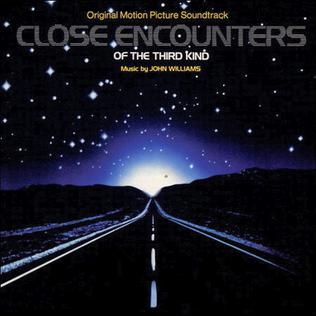
Close Encounters of the Third Kind (Original Motion Picture Soundtrack) is the film score to the 1977 film of the same name, composed and conducted by John Williams. The soundtrack album was released on vinyl album (with a gatefold sleeve), 8-track tape and audio cassette by Arista Records in 1977, with a total running time of 41 minutes (it was later released on compact disc in 1990). The soundtrack album was a commercial success, peaking at #17 on the US Billboard album chart in February 1978 and was certified Gold by the RIAA for 500,000 copies shipped. It also peaked at #40 in the UK album charts.